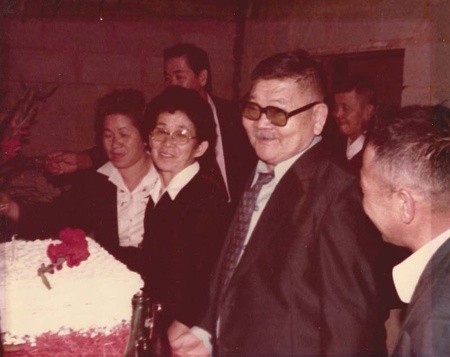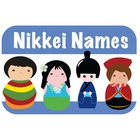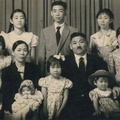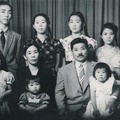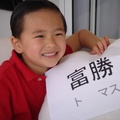The surname DOI in Portuguese means itai, itamu , that is, “it hurts”, “to hurt”.
I had a friend whose name was KUMEO. In fact, there are many Japanese names and surnames that begin with KU, for example, KUBOTA, KUJIKEN, which are a source of ridicule, as it is known that there is a bad word that is precisely the syllable KU.
Brazilians even made a huge list of names and surnames that became jokes if they Brazilianized the pronunciation.
As I lived in the most Japanese city in Brazil, Bastos, I had Japanese thoughts and I was not surprised or laughed when I heard such names.
But, today, living in a metropolis like São Paulo and interacting with Brazilian minds, I think that this friend's name could be embarrassing due to its meaning in Portuguese. It's a good thing his last name isn't DOI, because if it were, it would be truly catastrophic.
Newly arrived immigrants to Brazil were directed to local government inspectors for registration or registration. The problem started there, because the Japanese do not distinguish between the SI and SHI sounds. So, for example, the Japanese name SHIN and the positive answer in Portuguese YES were confused and this made the inspectors very angry. There was a young man who ended up in jail for disrespecting authority. He simply said his name loud and clear: DOI BUNTA. For those who only understand Portuguese, he stated that his buttocks hurt...
One of my sisters' name is MITSUE, but as Brazilians don't know the sound TSU, this name is pronounced MI-TU-SSU-E. Like the word “tsunami” which is known worldwide and which many TV reporters say “ti-ssu-na-mi”.
Even with globalization, there are still sounds that are difficult to pronounce.
My maiden surname is IWAHARA and, depending on the registry office, it was registered in different ways. So, I have a brother who is IUAHARA and another is YWAHARA. Therefore, my nephews and their descendants have surnames written differently, even though they have the same family root. There are those who say: “I am IWAHARA”, others “I am IUAHARA” and others “I am YWAHARA”. Fortunately the ideogram (kanji ) is the same 「岩原」.
Given this, I see and consider the importance of ideograms in Nikkei names and surnames. I believe that in Japan, when searching for the name using kanji , you would not have this difficulty in finding your ancestry.
There was a time in Brazil when the letters W – Y – K were not used. Names registered at a registry office were written without these letters. For example, my niece's name is IOCO IUAHARA, which should actually be YOKO IWAHARA.
Another issue is Japanese female names ending in “O”. In Brazil, it is assumed that it is a man's name. So, in the public office the employee announces: Mr. KAYOKO, Mr. MIOCO. The same happens when they write the recipient's name on the envelope as Mr. MITICO, for example.
And Japanese male names ending in “A” are confused with a woman's name. Like this: Mrs. KATUYA, Mrs. YUTAKA.
In both cases, it is quite embarrassing for those who have such names in Brazil.
My name TOMENO has never been confused with a male name because it is preceded by ROSA. If not, I would be called Mr. TOMENO.
© 2014 Rosa Tomeno Takada
Nima-kai Favorites
Each article submitted to this Nikkei Chronicles special series was eligible for selection as the community favorite. Thank you to everyone who voted!


